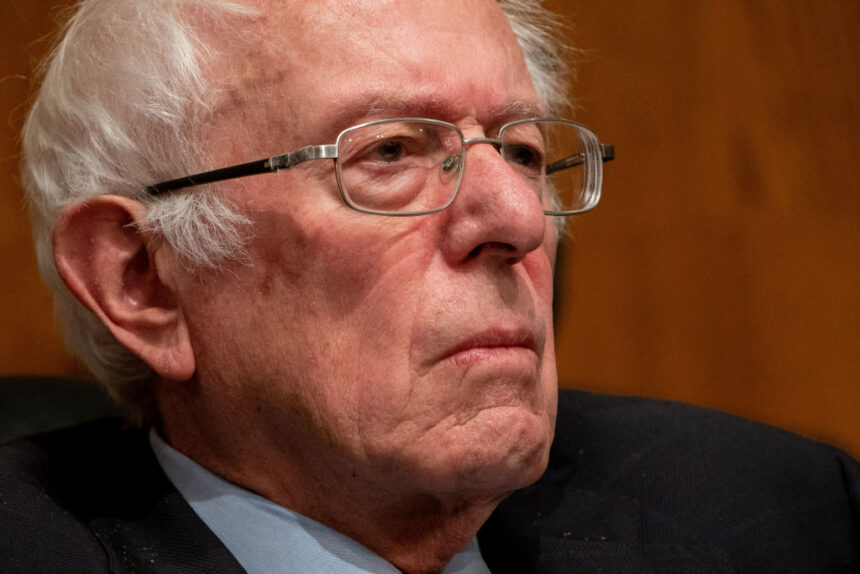Sen. Bernie Sanders, (I-VT), is once again at a stand-off with Big Pharma.
Following a request in November that the CEOs of Johnson & Johnson, Merck and Bristol Myers Squibb testify at a hearing focused on high drug costs, Sanders was not happy when only one of the leaders — Bristol Myers Squibb’s Chris Boerner — agreed to participate.
Last week, Sanders threatened to subpoena J&J CEO Joaquin Duato and Merck CEO Robert Davis to force them to show up to the hearing to provide testimony about “why their companies charge substantially higher prices for medicine” in the U.S. compared to other countries.
Sanders heads the Senate Health, Education, Labor and Pensions (HELP) Committee, which hasn’t issued a subpoena in more than 40 years.
Both J&J and Merck offered other executives to attend rather than their CEOs, but Sanders was not happy with that offer, calling it “absolutely unacceptable” that the CEOs refused to agree to the hearing.
“These CEOs may make tens of millions of dollars in compensation,” Sanders said in a statement. “But that does not give them a right to evade congressional oversight.”
Sanders will now instead hold a HELP committee vote on January 31 on whether to issue the subpoenas against Duato and Davis over high drug costs.
Bad blood exists
To better understand the current situation these parties find themselves in, it’s helpful to add some context.
J&J, Merck, and Bristol Myers Squibb are among the drugmakers that sued the federal government over the Inflation Reduction Act’s Medicare negotiation provision, arguing the new law “infringes” on constitutional rights.
Merck’s diabetes treatment Januvia, J&J’s cancer drug Imbruvica and Bristol Myers Squibb’s blood thinner Eliquis are among the first ten drugs chosen by the federal government to have their prices negotiated under the new IRA provision.
Ahead of the now-scrapped hearing, Sanders highlighted the high prices of those drugs, noting that Januvia’s $6,000 U.S. price tag significantly trumps its cost in France, which is just $200. Eliquis, likewise, costs $6,700 in the U.S. compared to $650 in France.
The difference is stark among the other drugs in the list, with the U.S. drug prices averaging about three to eight times higher than the prices in other countries, according to The Commonwealth Fund.
Still, that hasn’t stopped all three pharma companies from pursuing litigation against the federal government.
There are currently 10 ongoing lawsuits from pharma companies — including Novo Nordisk and Novartis — seeking to invalidate Medicare negotiations, according to the Georgetown University O’Neill Institute Health Care Litigation Tracker.
In written statements, both J&J and Merck pushed back against Sanders’ request to testify in front of the HELP committee. In a letter to Sanders earlier this month, a J&J attorney suggested that the Senator was seeking to punish the companies that had launched lawsuits, according to the The Wall Street Journal.
“[Y]our staff and your public comments have indicated” that the hearing would target “the companies that pursued litigation challenging certain aspects” of the IRA, the attorney wrote.
Meanwhile, Merck EVP Jennifer Zachary said that the company would be willing to assist the hearing by offering a non-CEO witness.
“[T]he decision to invite only the three companies you have selected to testify… raises serious questions about whether the hearing is being planned in service of a valid legislative purpose and consistent with the First Amendment,” Zachary wrote, according to The Hill. “Your insistence on CEOs appearing at a public hearing serves only to underscore the concerns we have raised.”
Rivalry renewed
The latest row between Sanders and Big Pharma follows a storied past between the two opponents.
Last year, Sanders put the CEOs of major insulin makers in the crossfire and, in a separate hearing, grilled Moderna CEO Stéphane Bancel over the company’s proposed price hikes of its COVID-19 vaccine.
In addition to the public animosity between Sanders and the nation’s leading drugmakers, there was the issue of the National Institutes of Health (NIH) director.
Most of last year, Sanders also sought to block the nomination of Dr. Monica Bertagnolli to the head NIH position unless the federal government committed to doing more to lower drug prices. Ultimately, Bertagnolli was confirmed to the role.
Sanders is also no stranger to subpoenas. Last spring, he threatened to subpoena the CEO of Starbucks, Howard Schultz, to testify in Congress over the company’s alleged union busting. Schultz agreed to appear at the hearing following the threats.
For a January 2024 article about J&J and Merck CEOs agreeing to testify at Senate panel, click here.







